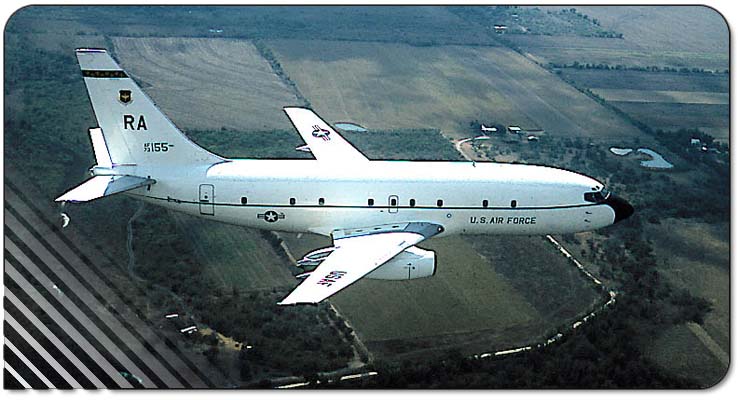Description:
The T-43A is
a medium-range, swept-wing jet
aircraft equipped with modern navigation and communications equipment
to train navigators for strategic and tactical aircraft.
Features
The
T-43A is the Air Force version of the Boeing 737 transport. One jet
engine is mounted under each wing. The exterior differences between the
military and commercial aircraft include many small blade-type
antennas, sextant ports, a wire antenna for a high-frequency radio and
fewer windows.
Inside each T-43A training compartment are two
minimum proficiency, two maximum proficiency and 12 student stations.
Two stations form a console and instructors can move their seats to the
consoles and sit beside students for individual instruction.
The
large cabin allows easy access to seating and storage, yet reduces the
distance between student stations and instructor positions.
The
student-training compartment is equipped with advanced avionics gear
identical to Air Force operational aircraft. The equipment includes
mapping radar, very high frequency omnidirectional range and tactical
air navigation radio systems; inertial navigation systems; radar
altimeter and all required communication equipment.
Five periscopic sextants spaced along the length of the training
compartment are used for celestial navigation training.
Background
The
T-43A is used for navigator training at Randolph Air Force Base, Texas,
where the Air Force also trains Air National Guard, Air Force Reserve,
Navy, Marine and international students.
The first T-43A was
delivered to the Air Force at Mather AFB, Calif., in September 1973,
and the last deliveries were made in July 1974.
Air Education
and Training Command's T-43 fleet relocated to Randolph AFB, Texas, in
May, 1993, following the closure of Mather AFB. |
WEFT Description
-
- WINGS
- ENGINE
- FUSELAGE
- TAIL
|
|

